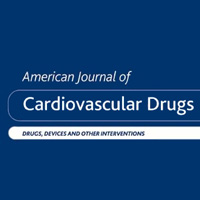Auteurs
Lattuca B, Cayla G, Silvain J, Cuisset T, Leclercq F, Manzo-Silberman S, Saint-Etienne C, Delarche N, El Mahmoud R, Carrié D, Souteyrand G, Kerneis M, Hauguel-Moreau M, Zeitouni M, Guedeney P, Diallo A, Collet JP, Vicaut E, Montalescot G; ACTION Study Group.
Abstract
Background
Elderly patients are at high-risk of bleeding, but are under-represented in clinical trials.
Aims
The aims were to determine the incidence and the predictive factors of bleeding and to assess the impact of bleeding on further ischemic outcomes in elderly patients after acute coronary syndrome (ACS) treated with percutaneous coronary intervention.
Methods
From the 877 patients aged ≥ 75 years included in the ANTARCTIC randomized trial, data on Bleeding Academic Research Consortium (BARC) bleeding complications and major adverse cardiovascular events (MACE), defined as the composite of cardiovascular death, myocardial infarction, and stroke, were collected over 1 year.
Results
Clinically relevant bleeding events (BARC types 2, 3, or 5) were observed in 20.6% of patients (n = 181) at 1 year, of which, one third occurred in the first month. Anemia (adjusted hazard ratio [adj.HR] 3.98, 95% confidence interval [CI] 1.41-11.22; p = 0.009), severe chronic renal failure (adj.HR 1.83, 95% CI 1.12-2.98; p = 0.015), and femoral access (adj.HR 2.54, 95% CI 1.71-3.77; p < 0.001) were independently associated with clinically relevant bleeding events, while age > 85 years (adj.HR 2.22, 95% CI 1.14-4.30; p = 0.018) was independently associated with major bleeding events (BARC types 3 or 5). Patients with a clinically relevant bleeding event had a higher rate of MACE at 1 year (adj.HR 2.04, 95% CI 1.24-3.38; p = 0.005), with a particularly strong effect on stroke (adj.HR 5.55, 95% CI 2.04-15.06; p < 0.001).
Conclusions
Clinically relevant bleeding events were observed in one out of five elderly patients undergoing stenting for an ACS and were strongly associated with further stroke occurrence. Rather than the antiplatelet therapy, comorbidities and an age > 85 years predicted bleeding outcomes in this elderly population.



